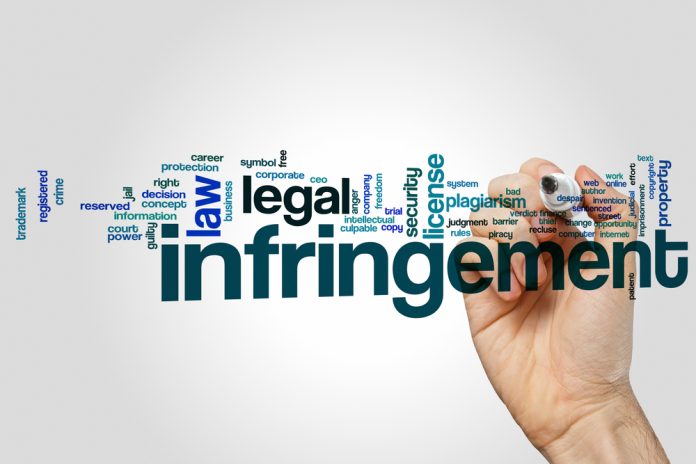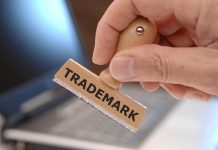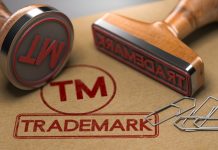This article is written by Ananya Agarwal, pursuing a Diploma in Intellectual Property, Media and Entertainment Laws from LawSikho. The article has been edited by Aatima Bhatia (Associate, LawSikho) and Ruchika Mohapatra (Associate, LawSikho).
Table of Contents
Introduction
Lil Nas, a popular rapper, recently released his controversial track ‘Montero (Call Me by Your Name)’ which consistently featured in the Billboard Hot 100 List. The song was marketed to ride the gravy train of controversy, essentially a 21st-century re-creation of the controversy over Madonna’s ‘Like a Prayer’ video from 1989. As it received condemnation from the right-wing due to its depiction of the Bible in an unfavourable light, Lil Nas partnered with the New York-based art collective MSCHF. They created modified versions of Nike Air Max 97 which featured a bronze pentagram, the number “666” and a small amount of human blood, and most importantly, the Nike Swoosh. These shoes then went on to sell for 1018$, a nod to the Bible Verse 10:18, and 666 units were sold in less than a minute. However, Nike was not impressed with what is considered a cheap imitation of their popular shoes. This article seeks to examine the issue of trademark infringement in the case of Nike Inc. v. MSCHF Product Studio Inc.
Legal arguments
Nike’s complaint originates from the fact that there was a material alteration to their trademarked shoes with no prior authorisation. In doing so, MSCHF has created deception in the minds of the consumers as to Nike’s relationship with the Satan shoes. Given the heraldic nature of the shoes, it also causes defamation of the Nike brand. In their complaint, Nike stated the following:
‘MSCHF’s unauthorised use of Nike’s [marks] and/or confusingly similar marks constitutes a false designation of origin that is likely to cause consumer confusion, mistake, or deception as to the origin, sponsorship, or approval of MSCHF and/or MSCHF’s Satan Shoes by creating the false and misleading impression that MSCHF’s Satan Shoes are manufactured by, authorized by, or otherwise associated with Nike.’
Therefore, Nike filed a complaint under:
- Trademark Infringement in Violation of 15 U.S.C. § 1114
- False Designation of Origin / Unfair Competition in Violation of 15 U.S.C. § 1125(a)
- Trademark Dilution in Violation of 15 U.S.C. § 1125(c)
- Common Law Trademark Infringement and Unfair Competition
In lieu of this contention, Nike demanded a temporary restraining order (‘TRO’). However, MSCHF stated this was not necessary since 665 of the 666 shoes had already been shipped. Nike argued then if no injunction was granted, the company would suffer irreparable damage. They asked that all 666 pairs be shipped to them for destruction and requisite damages be paid to them.
The defendants relied on the ‘First Sale Doctrine’ the essence of which is that there can be no case for trademark infringement if the alleged offender resells the item after purchasing it through authorised means, even if no permission for resale is granted. However, this principle was not accepted in the present matter since the modifications made to the shoe were such that it caused a loss in originality and deceived the public into believing Nike’s relationship with the modified shoes.
It is to be noted that earlier, MSCHF had released ‘Jesus Shoes’ originating from Nikes Air Max 97. In this instance, Nike did not sue the company as it received positive attention from the same. Predicting that this might be a ground of defence by MSCHF in the present matter, Nike cleared its stance by stating that it had not given up the right to sue the company for the ‘Jesus Shoes’ and reserved that action for when the ‘likelihood of confusion loomed largely.’
Trademark law in the U.S.A.
Trademark Law in the U.S.A is governed by the Lanham Act, 1946. §32 of this Act provides for penalties of an infringer. When there is unauthorised use of a trademark, the offender is liable to civil action and the owner of the trademark can exhaust a number of remedies. Further, §43 states that any person making the misleading representation, such that it has the likelihood of causing confusion in the public’s mind can be sued by another person who has a reason to believe that rights of his shall be affected by such an Act. The remedies offered to the offended party are as follows:
- Injunctive Relief (§34): Under this the defendant will be required to give a report as to his compliance with the injunction order.
- Recovery of Damages (§35): In case of violation under §1112, the plaintiff can recover any profits made from the sale of such infringing product, damages upto three times the damage incurred and any costs incurred in the lawsuit. In exceptional cases, attorney fees may be granted to the plaintiff.
- Destruction of Infringing Material (§35): It is possible to pass an order for the removal of any labels, signs, prints, packages, wrappers, receptacles, and advertisements carrying the disputed mark. In addition, if a deliberate breach occurs as a result of replication, counterfeiting, copying, or improper imitation, the Court will issue a delivery and destruction order.
Verdict and settlement
In the present matter, the judges had to examine whether the use of the mark has artistic relevance, and if so, whether the work is explicitly misleading. The response was that the black and red, devil-themed sneakers carrying the Nike ‘Swoosh’ logo, had infringed the Nike trademarks. The judge took out a restraining order telling MSCHF to recall all of its 666 pairs of ‘Satan Shoes’ and to provide the returnee a complete reimbursement on the same.
However, on April 8, 2021, the parties reached an agreement to end the case. While the majority of the terms of the settlement are kept under wraps, a spokesman for Nike told Yahoo Finance that the company requested MSCHF to start a voluntary recall to purchase back any Satan Shoes and Jesus Shoes for their original retail pricing and remove them from circulation. Nike included the Jesus Shoe in this recall to preclude MSCHF using the defence of laches, which states that if a plaintiff waits too long to establish a right, that right is waived.
Conclusion
Although creativity and artistic talents must be nurtured, there exists a limit. Profiting off an established player’s goodwill with disrespect to ethical barriers is a problematic precedent. A balance must be struck between innovation and protection of others’ IP. The author believes this case highlights the importance of trademark strategy. Registration of a trademark is just one aspect of it. Trademark owners have a further duty to protect their trademark to their best capacity. In the present case, it was Nike’s strategic choice to originally not sue for Jesus Shoes and then subsequently add that to the settlement deal for Satan Shoes. Such decisions should be well thought out with the aid of experts and lawyers so as to minimize loss and dilution of the brand.
References
- https://www.nytimes.com/2021/04/05/arts/music/lil-nas-x-montero-billboard-chart.html
- https://www.cbsnews.com/news/nike-sues-lil-nas-x-satan-shoes-lawsuit/
- https://www.abc4.com/wp-content/uploads/sites/4/2021/03/NIKE-vs-MSCHF.pdf
- https://www.mondaq.com/unitedstates/trademark/1061266/trademark-infringement-nike-v-mschf-satan-shoes-case
- https://news.bloomberglaw.com/ip-law/satan-shoes-prompt-nike-suit-against-brooklyn-design-company
- https://www.forbes.com/sites/rachelsandler/2021/04/08/nike-settles-lawsuit-with-company-behind-lil-nas-x-satan-shoes/?sh=2f24c68f575d
LawSikho has created a telegram group for exchanging legal knowledge, referrals, and various opportunities. You can click on this link and join:
https://t.me/joinchat/J_0YrBa4IBSHdpuTfQO_sA
Follow us on Instagram and subscribe to our YouTube channel for more amazing legal content.
 Serato DJ Crack 2025Serato DJ PRO Crack
Serato DJ Crack 2025Serato DJ PRO Crack











 Allow notifications
Allow notifications


